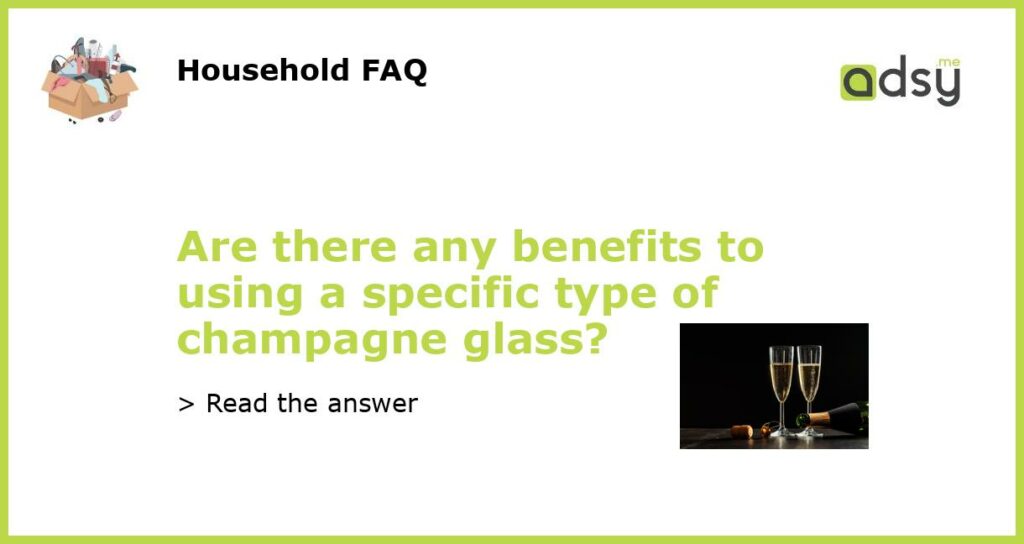Why the Type of Champagne Glass Matters
When it comes to enjoying a glass of champagne, the type of glass you use may seem like a minor detail. However, the shape and design of the glass can actually have a significant impact on the overall experience. Here are a few reasons why the type of champagne glass you choose matters:
The Role of the Flute Glass
The flute glass is perhaps the most iconic champagne glass, known for its long, slender shape and narrow opening. This design is intended to create a visual effect by highlighting the bubbles in the champagne, as well as retaining the carbonation for a longer period of time. Flute glasses are particularly well-suited to dry champagnes, as they help to balance out the acidity and bring out the subtle flavors and aromas.
The Benefits of a Coupe Glass
While the flute glass may be the most common choice, some champagne enthusiasts prefer the more classic look and feel of a coupe glass. The shallow, wide design of the glass allows for a larger surface area, which can enhance the overall aroma and bouquet of the champagne. Additionally, the wider opening encourages a greater release of bubbles, creating a more effervescent and lively drinking experience.
Considerations for Tulip Glasses
Tulip glasses are a less common choice for champagne, but they can offer a unique combination of benefits. The bulbous shape of the glass helps to capture and concentrate the aroma of the champagne, while the narrow opening allows for a more controlled and directed release of bubbles. This type of glass is particularly well-suited to complex, aged champagnes that require a bit of extra attention to fully appreciate their character and nuances.
Choosing the Right Glass for Your Champagne
Ultimately, the type of champagne glass you choose should depend on your personal preferences and the specific bottle of champagne you plan to enjoy. If you’re interested in learning more about the differences between various types of champagne and the ideal serving methods, consider consulting a guide or educational resource such as Champagne.fr – but don’t be afraid to experiment and discover your own favorite methods as well.





